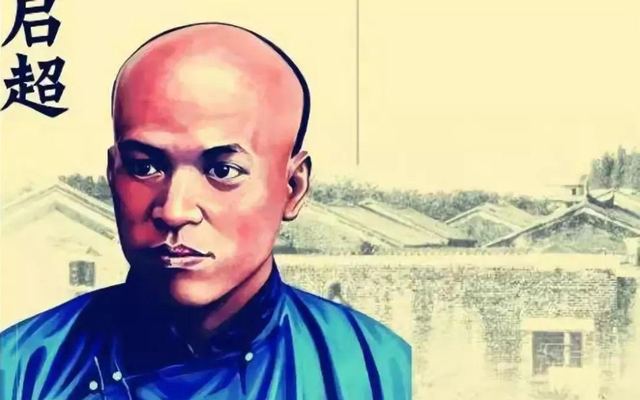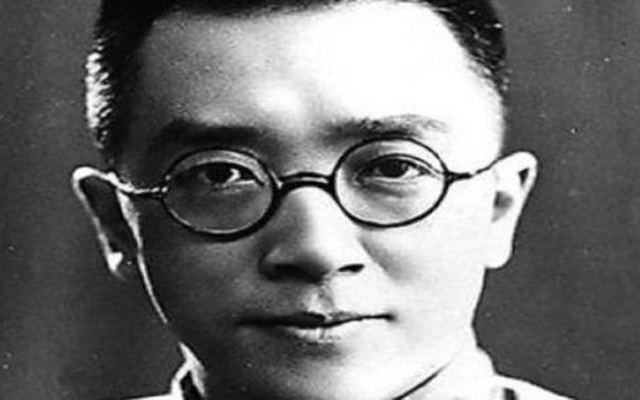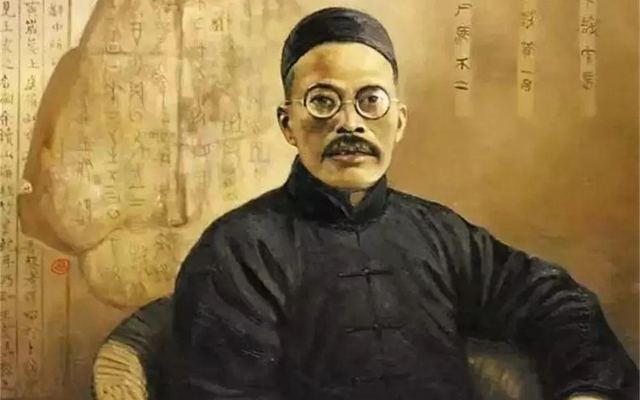Compared with Western studies, Chinese Studies covers all kinds of cultural scholarship in various dynasties of Chinese history. In this field, batches of Chinese scholars have been born. This article summarizes the top ten Chinese Studies master rankings.
1. Liang Qichao 梁启超

Master of the Chinese academic circle, one of the four professors of the Institute of Chinese Studies of Tsinghua University, modern Chinese educator, historian, writer, thinker, politician, leader of the Reform Movement of 1898, and representative of the new legalist. Liang Qichao was one of the first important figures who promoted the concept of “Guoxue” in the early 20th century. He has written great wealth throughout his life. He has deep attainments in almost all academic fields such as literature, history, philosophy, and Buddhism, and he has no lack of insights. , The main works include “Chinese History Research Law”, “Xinmin Shuo”, etc.
2. Zhang Taiyan 章太炎

Modern democratic revolutionaries, thinkers, and well-known scholars. His research covers elementary school, history, philosophy, politics, etc., and he has written extensively. As a master of Chinese Guoxue, Zhang Taiyan presided over the Zhang’s Guoxue Seminar in Suzhou in 1935, mainly teaching Guoxue that is Chinese academic culture. His works on Guoxue include “Introduction to Guoxue”, “Guogu Lunheng”, etc., as well as “New Dialects” and “Wen Shi “Wait. He has achieved high achievements in many fields of Chinese studies, especially in literature, history, linguistics, etc., and he can be called the first person in “Chinese studies”.
3. Wang Guowei 王国维

A famous scholar with international reputation during the intersecting period of China’s modern and modern times. Wang Guowei was the first to integrate Western philosophy and aesthetics with Chinese classical philosophy and aesthetics, study philosophy and aesthetics, and formed a unique aesthetic system. He then focused on poetry and drama, and later studied history, ancient philology, and archaeology. In history, Wang Guowei is the pioneer of new history, opening up a new dimension of history. In addition, he has profound knowledge and innovation in education, philosophy, literature, opera, aesthetics, and ancient literature.
4. Chen Yinke 陈寅恪
In modern China, a historian, classical literature researcher, linguist, and poet is a rare figure in a century. He has devoted himself to historical research for a long time, with a wide range of research. He has a wide range of researches on the history of the Wei, Jin, Southern and Northern Dynasties, the history of the Sui and Tang Dynasties, the history of religions (especially the history of Buddhism), the history of various ethnic groups in the Western Regions, the history of Mongolia, ancient linguistics, Dunhuang studies, and classical Chinese literature. As well as historical methods and other aspects have made important contributions. Author of “A Brief Commentary on the Origin of Sui and Tang System”, “A Commentary on Political History of the Tang Dynasty”, “An Evidence of Yuan Bai Poems” and so on.
5. Qian Zhongshu 钱钟书
The top ten masters of modern Chinese studies, Chinese literary researcher and modern writer. Qian Zhongshu has outstanding achievements in literary research and creation, especially in scientifically sublating Chinese traditional culture and selectively borrowing from foreign cultures, which has important enlightening significance. Qian Zhongshu met Yang Jiang in 1932 in front of the Gu Yuetang of Tsinghua University. He received a bachelor’s degree from Exeter College, Oxford University in 1937. In 1947, the classic novel “The Besieged City” was published. In 1958, “Selected Notes on Song Poems” was included in Chinese Classics. Literature reading series.
6. Feng Youlan 冯友兰
A very representative figure in the Chinese ideological circle in the 20th century, and the top ten masters of modern Chinese studies. He once taught at the Institute of Chinese Studies of Tsinghua University. He has all-inclusive, inherited and elucidated the traditions of Cheng-Zhu Neo-Confucianism, and borrowed from modern Western philosophy. As a result, a unique new Confucian system of philosophical thought was constructed. His work “History of Chinese Philosophy” is another extensively influential work on the history of Chinese philosophy after Hu Shi’s “Outline of the History of Chinese Philosophy”, representing the highest level of research on the history of Chinese philosophy in the 1930s.
7. Huang Kan 黄侃
What are the masters of Chinese studies? Huang Kan is a famous linguist, master of Chinese studies, and democratic revolutionist in modern China. Master Huang Kan taught Zhang Taiyan, and his studies of writing, rhyme, and exegesis, from far to Shao-Han-Tang, and near to Qian-Jia, he has many original ideas and formed his own family. In the aspect of phonology, the ancient sounds are classified according to the actual speech at the time. In his later years, he mainly engaged in the study of exegetics. Huang Kan’s works are abundant, and his important works include dozens of such as “Shuo Wenlue Shuo”, “Er Yaluo Shuo”, “Jiyunsheng Class Table”, “Wenxin Diaolong Notes”, “Rizhilu School Notes” and so on.
8. Liu Shipei刘师培
Liu Shipei, a leading Chinese scholar, has seventy-four monographs on Confucian Classics (mainly in elementary school and Zuo Zhuan studies), historiography (initiating modern Chinese academic history), and literature (advocating Six Dynasties literature and maintaining the literary tradition of the Yangzhou School of Parallel Prose). As a master of Confucian classics, while inheriting the family studies of the “Zuo Family”, he is good at absorbing the methods and results of modern Western social science research into the study of traditional Chinese culture, opening up a new realm of traditional cultural research, and achieving many results. When he was in Japan, he was as famous as Zhang Taiyan, and at that time there was also the term “second uncle”.
9. Gu Hongming 辜鸿铭
Gu Hongming, who studied both Chinese and Western, was known as the “Grange of the Late Qing Dynasty”. He was proficient in 9 languages including English, French, German and Latin, and received 13 doctoral degrees. He translated three of the “Four Books”: “The Analects”, “The Doctrine of the Mean”, and “The University”. He also authored English books such as “The Oxford Movement in China” and “The Spirit of the Chinese”. He is keen to promote Eastern culture and culture to Westerners. Westerners once described it like this: In China, you can ignore the Three Great Halls, and you have to look at Gu Hongming.
10. Qian Mu 钱穆
Famous modern historian, thinker, master of Chinese traditional studies, academician of the Academia Sinica, and distinguished researcher of the Palace Museum. Chinese academia respected him as the “master of a generation”, and some scholars called him the last scholar-official and master of Chinese studies in China. Qian Mu’s writings are abundant, with more than 80 monographs. He promoted traditional Chinese culture throughout his life, held high the banner of modern Neo-Confucianism, and exerted great influence on the mainland, Hong Kong, and Taiwan. His representative works include “The Years of the Pre-Qin Zhuzi” and “The Academic History of China in the Past Three Hundred Years”.